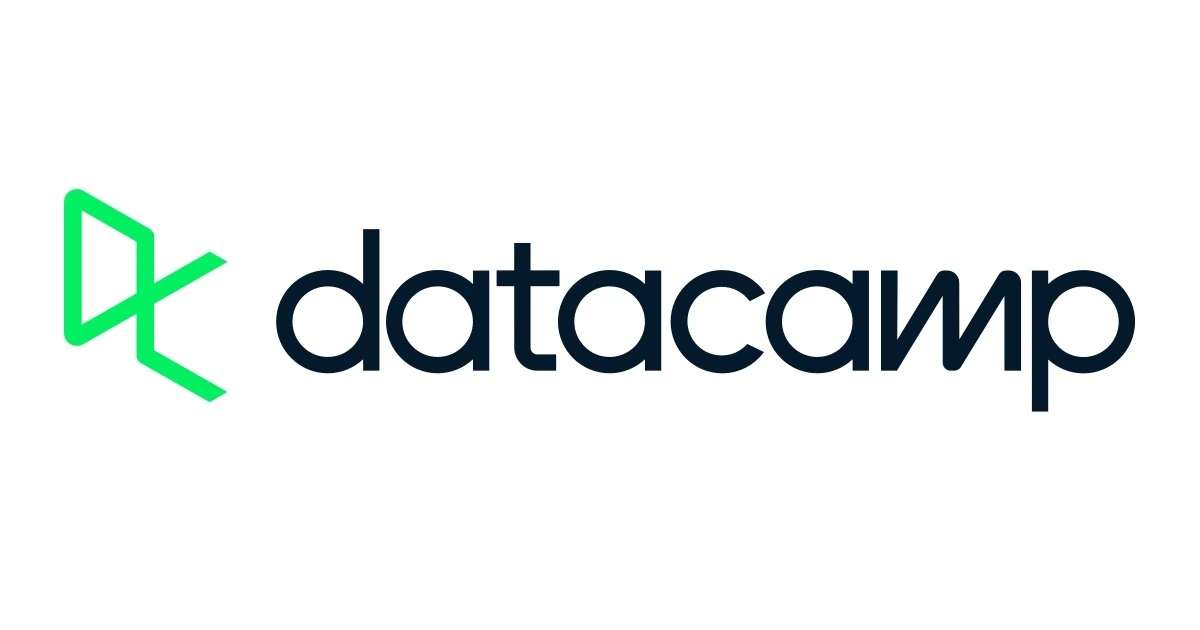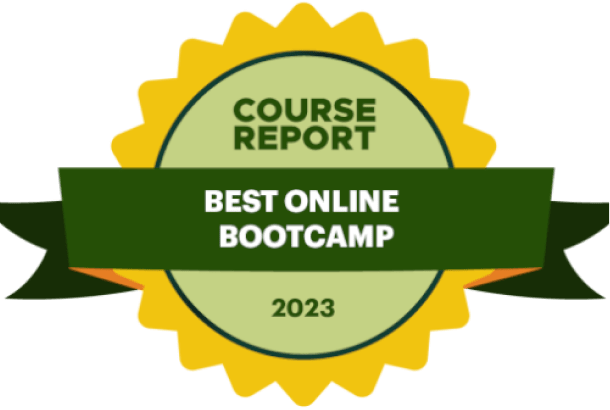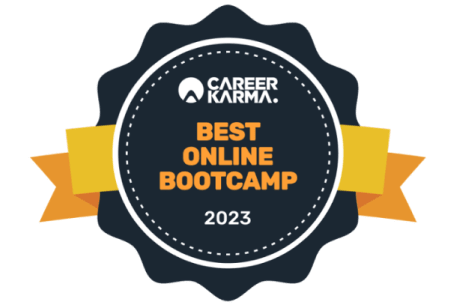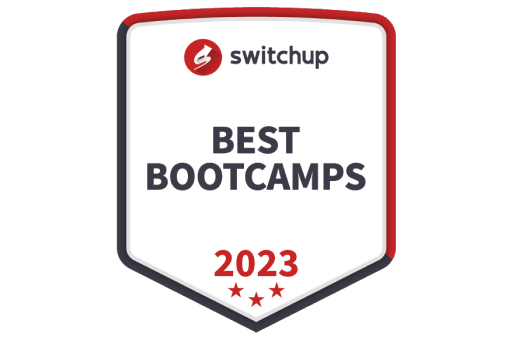Build job-ready skills with 28 mini-projects and 3 capstones and an advanced specialization project that suits your career goals.
A data science bootcamp on your schedule, backed by our Job Guarantee
Launch your data science career in just 6 months part-time. Our flexible, human-guided curriculum featuring advanced specialization means you can learn when you want with support as you need it.
Work 1-on-1 with an expert mentor, industry career coach and student advisor when you need guidance from course start to new job.
We believe in you and our program, so if you don't land a data science job or you'll receive a full refund.
Drive your career through data
+$25K
Average salary increase of Springboard data science students who provided pre- and post-course salaries
December 2023
In this data science bootcamp, you will learn:
The six steps of the Data Science Method
Problem identification and data wrangling
Analysis, modeling, and documentation
Plus, you’ll learn the tools and languages data scientists use:






In just 6 months, you'll learn to master big data to solve big business problems and transform your career.
Why launch a data science career?
Data science has become an essential component of modern business and has exploded in popularity in recent years. The vast amounts of data generated by businesses and individuals have led to an increased demand for professionals who can analyze, interpret, and draw insights from these data sets. Data scientists are in high demand across a range of industries, including healthcare, finance, and technology.
Why data science is a good career choice:
The Bureau of Labor Statistics predicts that the employment of data scientists is projected to grow 38% from 2021 to 2031, much faster than the average for all occupations.
According to Indeed, the average salary for a data scientist in the United States is over $128,000 per year. This high salary results from the demand for data scientists and the value they bring to organizations.
According to a study published by McKinsey Global Institute, the U.S. economy could be short as many as 250,000 data scientists by 2027.

Make better data-driven decisions with DataCamp
We’ve partnered with DataCamp to develop this bootcamp. You’ll take courses on SQL and complete a case study using your new-found knowledge to demonstrate the skills you’ll need in your data science career.
What you’ll learn in this data science bootcamp
We partnered with industry insiders, including DataCamp, so you can learn the skills employers look for. The curriculum features a combination of videos, articles, and hands-on projects to help you succeed as a data scientist. Over six months, you’ll not only master core data science skills, but you’ll also learn AI tools to uncover data patterns and extract insights.
Topic 1: Pre-Work
Before moving on to the core sections of the curriculum, you’ll work through exercises that will help you familiarize yourself with Python, the most popular programming language for data science tasks, and get a crash course in statistics from Khan Academy.
NEW! AI learning units added to the data science curriculum
Learn to harness the transformative power of AI in the world of data. Find out how AI can help you instantly identify data patterns, actionable insights, and the best business-case decisions. Explore different types of machine learning, plus gain understanding in the ethics of AI with a focus on fairness, transparency, and privacy. With AI you can become more powerful and a valuable asset to your employer.
Build a portfolio that proves your skills to hiring managers
The best way to learn data science is by working on projects. Complete 28 mini projects and 3 capstone projects. Build an interview-ready portfolio you can show future employers.
While working on projects, you will:
Identify a client’s business problem
Acquire, wrangle, and explore relevant data
Use machine learning to make predictions
Learn to create real-world business impact through data storytelling
Past projects from Springboard students
Work 1-on-1 with your data science mentor
Get the training you need to learn data science. Our mentor-guided learning not only helps you build data science skills faster, but also enables career growth.
Personalized guidance to move you forward
Regular video calls with an experienced data science mentor, where you can ask the questions that matter to you
Accountability at every step
Your mentor will help you stay on track and as you tackle your curriculum, project, and career goals.
Industry insight on demand
Get additional 1-on-1 help from experienced data science mentors within our community, at no extra cost.

Mentor: Ryan Rosario
Machine Learning Engineer


Mentor: Sameera Poduri
Principal Data Scientist


Mentor: Eric Rynerson
Data Scientist

Land the job you want with 1:1 career coaching
Our career-focused curriculum, 1:1 calls with your career coach, and mock interviews, will help you land your dream job. You can access these and all our career support services after completing the program.

Your career coaching calls will help you:
Create a successful job search strategy
Build your data science network
Find the right job titles and companies
Craft a data science resume and LinkedIn profile
Prepare with mock behavioral and technical interviews
Negotiate your salary

A data science bootcamp with a job guarantee
Invest in yourself with confidence with the Springboard Job Guarantee. If you put in the work and don't land a job, we'll give you a refund. Terms apply.
Eligibility for the Springboard Job Guarantee:
Bachelor’s Degree
Successful completion of all mandatory coursework, core projects and career development tasks
Fulfill all post-completion job search requirements — regular networking, job applications and interviewing
Our data science students launch fulfilling careers
+$25,434
Average salary increase of data science students who provided pre- and post-course salaries.
December 2023
89.2%
Of job-qualified individuals who reported an offer, received it within 12 months of graduation.
December 2023
3,984
Enrolled students in the data science bootcamp since 2016.
December 2023
Here’s why people like you choose Springboard
Is this bootcamp right for you?
Springboard data science students come from a variety of backgrounds, but they all share a passion for solving problems, and meet the following requirements.
Requirements
6 months of active coding experience with a general-purpose programming language (e.g., Python, R, Java, C++)
Comfort with basic probability and descriptive statistics, including concepts like mean and median, standard deviation, distributions, and histograms
No data science experience?
Become a data scientist from scratch at no extra cost. Our Foundations to Core program is a beginner-friendly course that will help you build your knowledge of data science concepts and master Python programming before you take on the core Data Science Career Track curriculum.
Apply to the next cohort
This data science bootcamp is a six-month program for students devoting 20-25 hours per week, or you can dedicate more time to land your new job faster.
Tuition
Every tuition option comes with Springboard's job guarantee. Get a data science job or you'll receive a full refund . Read the full Job Guarantee eligibility terms and conditions
Your questions, answered
Ready to become a data scientist? Apply now
Spots are limited, and we accept qualified applicants on a first-come, first-served basis. Start your free application. It takes just 5 minutes to complete.
































